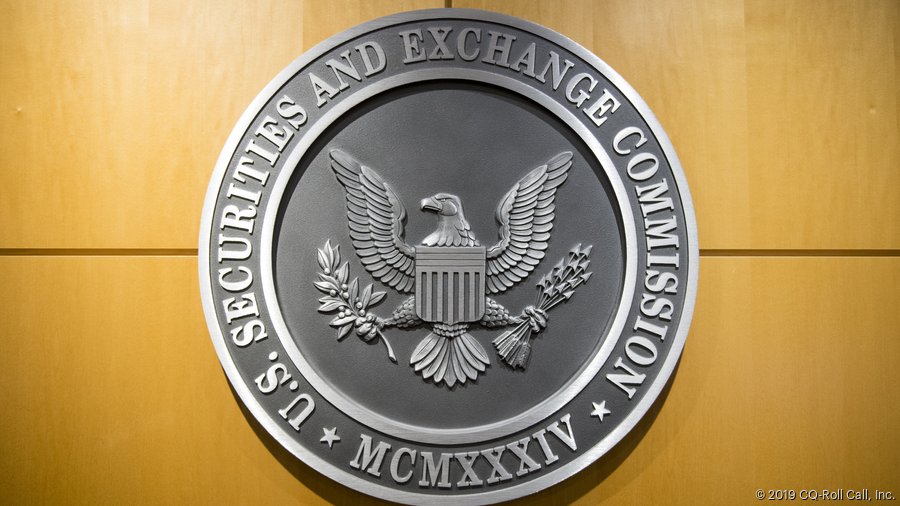Listen to this article 3 min
As senators scrutinize the break-neck pace of rulemaking at the U.S. Securities and Exchange Commission, some advisors are pushing back against proposals they see as costly – questioning the problems the agency is trying to solve.
“Please try again.” It’s the candid take of Laird Hepburn, COO of Apex-based BSG Advisors, one of several commentators on a proposal filed recently by the SEC, a rule that would force firms to perform due diligence on their third-party partners.
To some advisors, it’s anything but innocuous – it’s additional time, money and headaches in an already-regulated industry. And the rules are adding up.
“It appears the drafters of this proposed rule have no idea how burdensome and prescriptive it is,” Hepburn wrote of the rule which, if enacted, would prohibit registered investment advisers from outsourcing certain services and functions without conducting due diligence and monitoring of those service providers.
The rule comes as a group of Republican senators – including North Carolina’s own Thom Tillis – sent the agency a letter questioning its operational integrity, in part because of its rulemaking pace. The senators noted in the Oct. 27 letter that through Aug. 29 of this year, 26 new rule proposals had come out of the SEC in 2022, more than double the number introduced in the entirety of 2021 and the highest total in the past five years.
“Despite many outside groups repeatedly requesting the SEC slow its rulemaking tempo to ensure proper time for stakeholder feedback and deliberation, you publicly shrugged-off these concerns,” the letter says. It's also signed by senators Tim Scott (R-South Carolina), Bill Hagerty (R-Tennessee), Mike Crapo (R-Idaho), Michael Rounds (R-South Dakota) and Steve Daines (R-Montana).
A heavily regulated industry
Christopher Harris, chair of the finance department and director of the Center for Financial Literacy at Elon University, understands the sentiment advisors like Hepburn are expressing, as he is also a registered investment advisor (RIA).
The industry is already heavily regulated and “you always do wonder well, every time they make a new rule, what’s this going to require now – what’s the cost and the time, and is it actually solving the problem that’s existing?” he said.
But he said the SEC is trying to protect clients. The definition of “financial advisor” leaves room for ambiguity.
“What they’re trying to say is, how do we make sure that a financial advisor is actually doing what’s best for the client first,” he said. “That’s the end goal … if the term ‘financial advisor’ can be used pretty loosely and a lot of this stuff can be outsourced, how do we make sure that an advisor isn’t purely making decisions in a way that may be best for the advisor with no real thought for what the impact could be on the client?”
In a prepared statement at the time the due diligence rule was proposed, SEC Chair Gary Gensler said investment advisers’ increased use of third-party service providers, such as those providing trading services and software, “has led staff to make several recommendations to ensure advisers that use them continue to meet their obligations to the investing public.”
“When an investment adviser outsources work to third parties, it may lower the adviser’s costs, but it does not change an adviser’s core obligations to its clients,” Gensler said Oct. 26. “Thus, today’s proposal specifies requirements for investment advisers designed to ensure that advisers’ outsourcing is consistent with their obligations to clients.”
Under the proposal, advisers would have to satisfy specific due diligence requirements before retaining any service provider – but it could be a complex process for small firms.
Hepburn was not available to talk about his stance, but in his comment to the SEC, he notes that his firm relies on third-party company Envestnet and doesn’t have any leverage over how it operates. He asks “what problem is this proposal trying to fix?”
“We do not need new rules to hold us accountable to our clients or regulators,” he writes of the proposal.
Harris suspects this rule – perhaps like other proposals being pushed out at a fast clip – would benefit from more SEC explanation. He said that if the SEC wants advisors on board with a proposal, it should highlight specific examples of why the problem addressed is a detriment to clients.
“Most people don’t mind wearing a seatbelt when they understand what can happen if you don’t have it on,” Harris said.
But not everyone who commented to the SEC was in blanket disagreement with the due diligence rule. Daniel Kolber, CEO of Intellivest Securities, said in his own comment that “it is vital that robust due diligence not be replaced by a check-the-box mentality.”
“There is not currently a viable substitute for a person analyzing the facts and circumstances of a proposed relationship,” he writes. “There is no doubt that eventually, the emerging blockchain ecosystem will be able to provide certain due diligence functions … but until that happens, the SEC must remain vigilant that RIAs and other fiduciaries not outsource functions without doing due diligence just to lower the RIA’s cost.”
Tthe SEC’s proposals have varied in scope, from the inside baseball proposals hardly noticed outside of the industry to rules others are watching to see how other regulators might adopt similar provisions, such as those involving climate-related disclosures.


